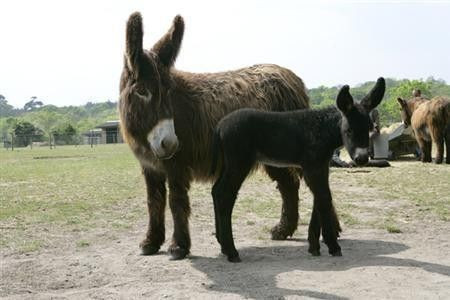Ancient Tonic Makes A Comeback

Lately, there seems to be a growing interest in donkey milk among Europeans and people from other countries. Products such as fresh or powdered milk and personal care products are processed using milk from donkeys. Cheese made from ass milk is very expensive. Small-scale donkey breeders and milk products manufacturers have reported increase in production because of higher demand and interest in their products. This nutritive drink is the best substitute for human milk and is known for its medicinal properties. Even Pope Francis reportedly grew up healthy by drinking donkey milk in his childhood.
According to the United Nation's Food and Agriculture Organisation, donkey milk contains essential nutrients and is highly recommended for those who have allergies or intolerance to cow's milk, soya, or other milk substitutes. It has properties similar to that of human milk because it is rich in lactose, low in fat, and nearly the same casein proportion. Ass milk has anti-bacterial agents that are a hundred times more active than those in cow's milk. Since it contains anti-allergens, it is suitable for individuals suffering from certain respiratory ailments and skin allergies. Hippocrates, the greatest ancient physician, pioneered writing about the healing properties of donkey milk. Pliny the Elder, a Roman historian, also did a comprehensive study on multiple conditions that can be cured with this healthy drink. In 2007, studies on the immunological properties of ass milk suggests that it aids in the prevention of common arterial disease. These health benefits have inspired donkey breeders and milk manufacturers to promote this resource.
Eurolactis, a company with branches in Italy and Switzerland, produces donkey milk for food and cosmetic purposes. Powdered milk formula are being manufactured for infants and children who are allergic to other milk substitutes such as soya and dairy milk. Another firm in France manufactures personal care products containing donkey milk. Ancient royalties in Egypt, Rome and France used to bathe in donkey milk to maintain their youthful looks. The same essence is now being incorporated in creams and soaps for commercial production. In South America, drinking donkey milk is customary and locals would just sell the fresh warm drink along the streets. Donkey milk buffs believe that this powerful tonic revitalizes and protects the body. Namibia in South Africa is host to more than 200, 000 donkeys. In 2012, these draft animals provided milk for the orphaned and undernourished children.
In spite of all the benefits donkey milk offers, production remains at a small-scale. It is a rare commodity because a female donkey can only provide less than two litres of milk in a day compared to a female cow, which can give around 50 litres or more. Moreover, milking a donkey has to be done manually unlike dairy cows that are milked using dairy machinery. Ancient Origins reports that a litre of donkey milk is sold at an average price of €24 or $30 in Cyprus and could be more expensive in other parts of Europe. Donkey breeders say that raising these animals is easier than breeding horses or cows. Consequently, the current limited supply of donkey milk can be increased in the future if there would be more people to consume this beneficial resource.
To contact the writer or to leave feedback, email: jm_panganiban@IBTimes.com.au




















